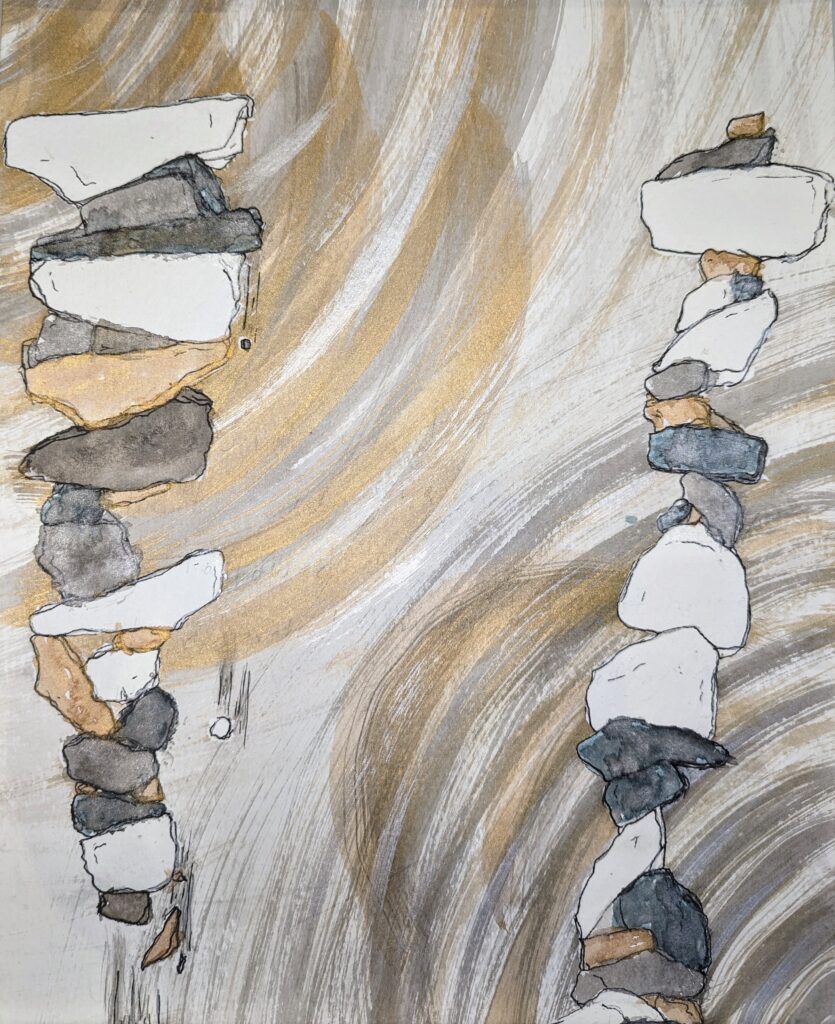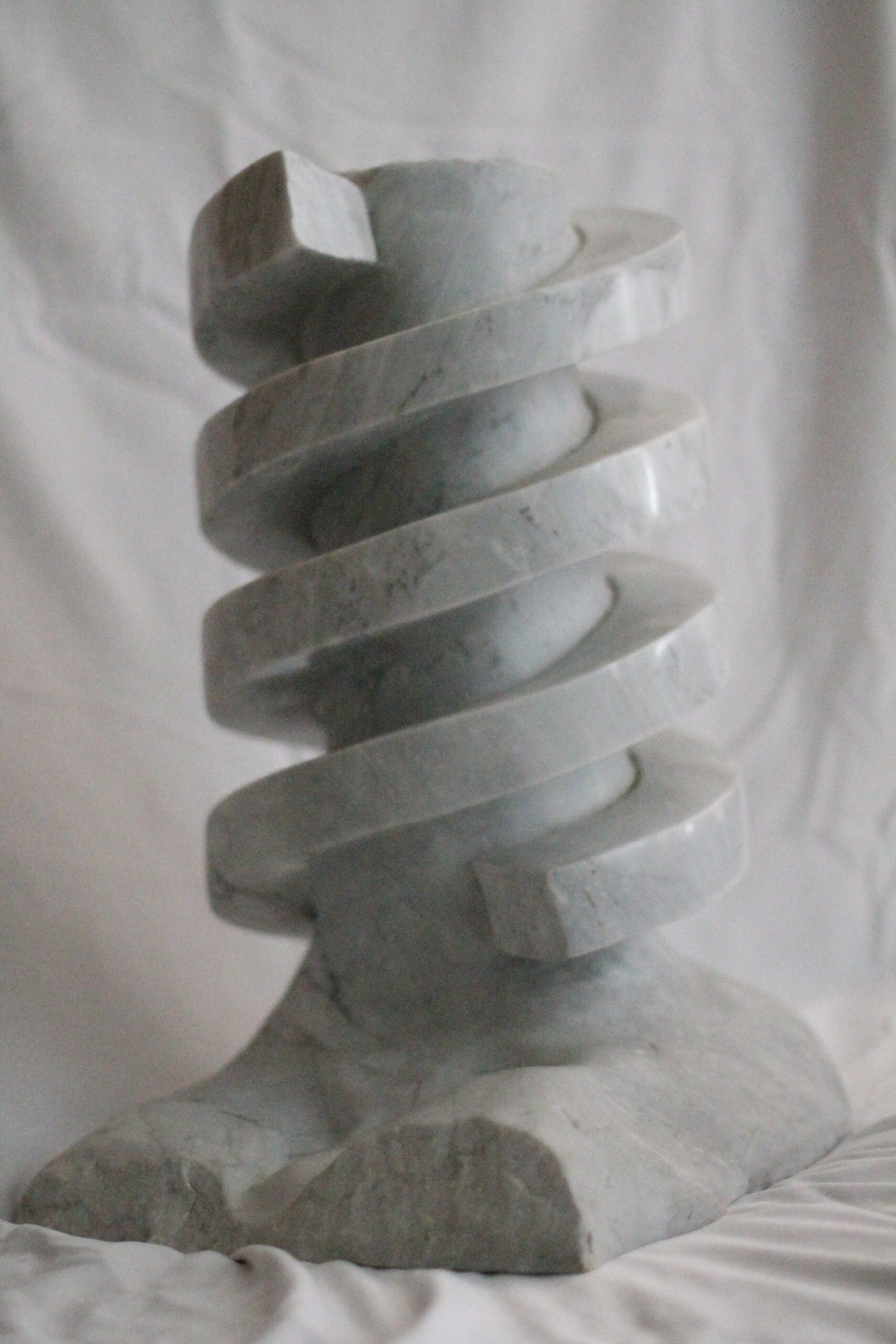Untitled


“Untitled”
by Aiden @jewishandlearning
Do you not hear it in your bones?
the hollow ringing
the hallowed tones
The desperate longing for long-lost homes
The graves stacked high with mourning stones
The Jewish custom of placing stones on graves is extremely ancient: one of the oldest and most widespread of Jewish traditions that are not directly commanded in the Torah or Talmud.
Today, the tradition is perhaps most powerful for the same reason that other cultures leave flowers on graves: it is a sign that the grave has been visited recently, and therefore that the departed is not forgotten.
Jews are said to prefer stones to flowers because flowers, as living things, wither and die, like our mortal bodies. Stones, by comparison, are everlasting, and thus represent the infinite perpetuity of the soul.
Stones also have a special significance in Judaism, with sacred stones ranging from the Tablets of the Ten Commandments, to the rock that Moses strikes in defiance of God, to the Kotel itself.
The Talmud suggests that even after a person dies, a certain aspect of their spirit continues to dwell within the grave, as a holy “beit olam” (“eternal home”). The origin of placing stones on the grave may have been the belief that the stones would keep restless souls “down”, content in the afterlife.













